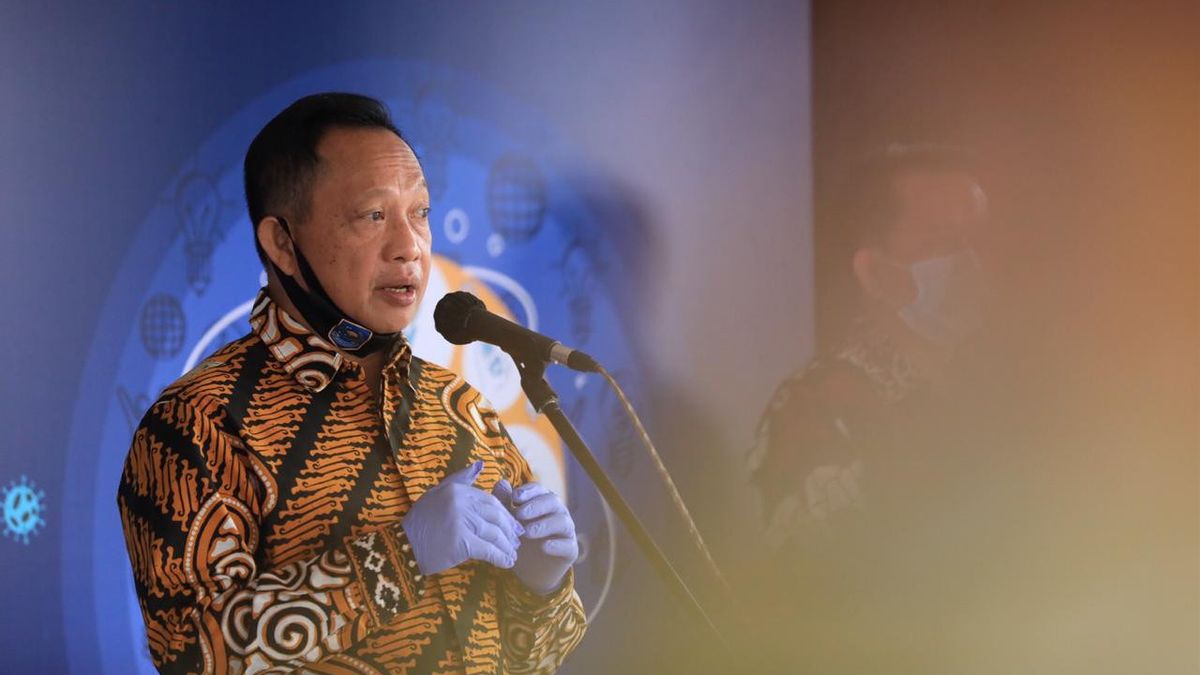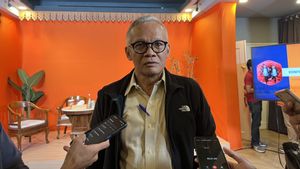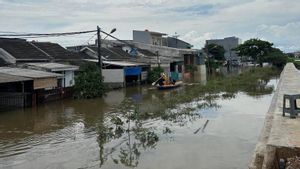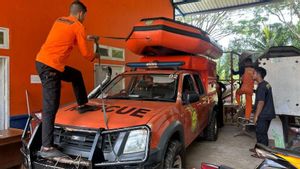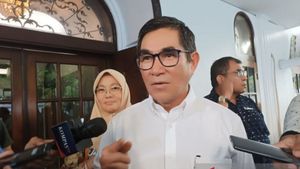JAKARTA - The Minister of Home Affairs (Mendagri) Tito Karnavian has asked regional heads who will return to the 2020 Pilkada (incumbent candidates) not to use social assistance (bansos) in the midst of the COVID-19 pandemic as a campaign tool.
"It is strictly forbidden for social assistance to use the personal identity of the incumbent regional head. All that is allowed is the identity of government agencies as part of governance identity," said Tito in a written statement, Monday, July 13.
He said the provision of social assistance during the COVID-19 pandemic could not be stopped because of the 2020 Pilkada, and there was concern that the provision would benefit the incumbent candidate. This is because social assistance must be provided as assistance from the government to people who are economically and socially affected in the midst of a pandemic.
Tito denied that there were allegations that the regional elections in the midst of the COVID-19 pandemic would benefit the incumbent candidates. In fact, he considered that the 2020 Pilkada would be more interesting because it would be a place to compete with regional head candidates' ideas regarding handling COVID-19 and its socio-economic impacts. Therefore, the incumbent candidates will be serious in carrying out their performance in order to gain the trust of the public.
"On the other hand, contestants who are not incumbents can sell ideas. So that this contestation will be healthier because they are both trying to win the hearts of the public through the fight for ideas and ideas regarding COVID-19," he said.
In line with Tito, Chairman of the Corruption Eradication Commission (KPK) Firli Bahuri asked that no incumbent take advantage of social assistance to increase the level of electability in the community.
Moreover, ahead of the 2020 Pilkada, the KPK often receives reports from the public about regional heads who have taken the opportunity to improve their self-image by hogging funds for handling COVID-19 from the central government.
Firli continued, the incumbent took advantage of this social assistance by making a campaign tool by pasting photos with his partner and sharing with people affected by COVID-19.
For this incident, Firli asked the General Election Commission (KPU) and the Election Supervisory Body (Bawaslu) to give penalties for incumbents who still complained about using social assistance for campaigns.
"The KPU and Bawaslu must be present to remind and impose sanctions for incumbents who use pandemic handling programs such as social assistance for imaging ahead of the regional elections," Firli said in his written statement.
The sanctions, he said, ranged from light to cancellation as a candidate for regional head as stipulated in Article 71 Paragraph 3 of Law Number 10 concerning Pilkada.
In this article, it is regulated that regional heads are prohibited from using powers, programs and activities that benefit or harm a pair of candidates both in their own region and in other regions within six months before the date of determination of the candidate pair until the appointment of the candidate pair is elected.
Parties must participate in preventing the use of social assistance for campaignsPolitical observer from LIPI Aisah Putri Budiarti said, preventing the use of social assistance as a campaign tool for the incumbent actually needs to be done together by several parties, one of which is a political party. According to him, political parties are very likely to pressure their candidates to cheat /
"This (can be done, red) by making an integrity pact or making a party statement," Puput said when contacted by VOI, Monday, July 12.
This integrity pact or party statement letter, he continued, must have a section that regulates regional head candidates who are supported in the regional elections not to commit any fraudulent acts. Including using social assistance as a campaign tool.
"If anyone continues to do so, they can be given sanctions by the party. For example, support by the party in the regional elections is revoked," he said.
Furthermore, the government must continue to monitor local government steps in providing social assistance. If a regional head is caught using the aid, the Minister of Home Affairs must immediately take firm action in the form of a warning or other sanction.
This monitoring, continued Puput, must be carried out together with the Election Supervisory Agency (Bawaslu). Moreover, the incumbent has the opportunity to take advantage of social assistance during the campaign period and this could be an opportunity for violations.
Furthermore, he said, the community also played a role in preventing social assistance from being used as a campaign tool. This is because the community can carry out its main supervisory function in the era of social media as it is today.
"With the development of social media nowadays, it makes it easier to disseminate to the public if there are members of the public who find cases of fraud like this," he said.
It is known that the 2020 Pilkada will be held in 270 regions on December 9. This schedule changed due to COVID-19. Previously, the 2020 Pilkada was scheduled to be held on September 23.
After the election schedule was postponed, the KPU resumed the stages of holding the Pilkada simultaneously since Monday, June 15 by forming a District Election Committee (PPK) and the inauguration of the Voting Committee (PPS) in the regions that will hold regional head elections.
Then, Regency / Municipal KPU again compiles Voters List by Regency / City KPU and submits it to PPS and Voting Organizing Group (KPPS).
Then, the KPU set a period for updating the Provisional Voters List (DPS) to the establishment of the Permanent Voters List (DPT) from 15 June to 6 December.
Furthermore, on September 4-6, the KPU will officially open the registration stage for prospective regional head candidates and the determination will be carried out on September 23.
After that, the campaign stages will start on September 26 to December 5 or 71 days. The KPU will divide the campaign period for the regional head candidates into three phases. First, limited meeting campaigns, face-to-face meetings, dialogue, dissemination of campaign materials to the public, installation of props, and / or other activities.
In the second phase, the KPU will conduct a public debate between candidate pairs as part of the campaign. The third phase of the KPU will open the campaign for regional head candidates through mass, print, and electronic media from November 22 to December 5. Prior to voting on December 9, the campaign will end with a quiet period which will take place on December 6-8.
The English, Chinese, Japanese, Arabic, and French versions are automatically generated by the AI. So there may still be inaccuracies in translating, please always see Indonesian as our main language. (system supported by DigitalSiber.id)
